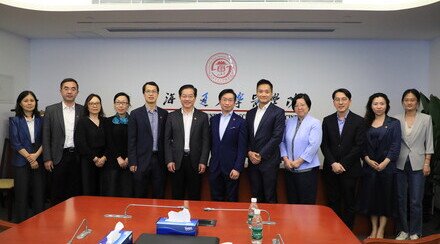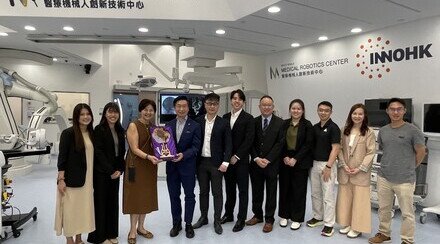
Weatherall Institute of Molecular Medicine (WIMM), University of Oxford
Name: SUNG, Joanne Chung Yan
Attachment: Weatherall Institute of Molecular Medicine (WIMM), University of Oxford
Period: 4 July 2016 - 19 August 2016
Over the summer of 2016, I was given the invaluable opportunity to attach to the Molecular Haematology Unit of WIMM under Professor Paresh Vyas, through the GPS summer internship program.
Professor Vyas is a physician-scientist, and he and his team’s main interest is translational research involving various hematological diseases, such as Acute Myeloid Leukemia (AML) and Myelodysplastic Syndrome. Through understanding more about normal hematopoiesis and genetic and epigenetic variations among patients, they hope to develop novel treatment options and improve patient care. In particular, I chose to work with Professor Vyas and his team as their lab does a lot of stem cell research, which I feel is an important field/skill that may play an important role in future medical research.
In the beginning, I rotated around the lab to learn from different post-docs and PhD students, trying to understand the different projects that the sub-teams were working on as well as acquire laboratory skills. These include tissue banking, DNA extraction, PCR, sequencing, barcoding stem cells by transfection, cell culture and fluorescent activating cell sorting. Afterwards, I assisted 3 sub-teams in their work, which ranged from studying normal hematopoiesis to assessing drug effectiveness in an AML clinical trial. At first, I was closely guided and supervised by my fellow colleagues; but afterwards I was given a lot of autonomy, where I was simply given a task, and I had to plan out and perform it independently. It was definitely a satisfying experience to see myself grow and learn so much by the time I completed the internship.
Besides acquiring technical and analytical skills, I was intrigued by the academic atmosphere of WIMM, where researchers were encouraged to join multiple seminars and had journal clubs and lab meetings each week. My fellow colleagues were also very driven at work, fueled by their passion for their research interest. It was also inspiring to see how different sub-teams of the Vyas lab complement each other in terms of skills and knowledge, which was well demonstrated in the lab setting as well as journal clubs, where they would offer advice, suggestions and helpful criticisms towards each other.
Finally, I would like to thank Vyas’s lab, WIMM and CUHK for this enriching experience, which allowed me to work with and learn from elite researchers around the world. In the future, I hope to further develop my skills and interest, and participate in translational research that will help improve patient care and clinical practice.









